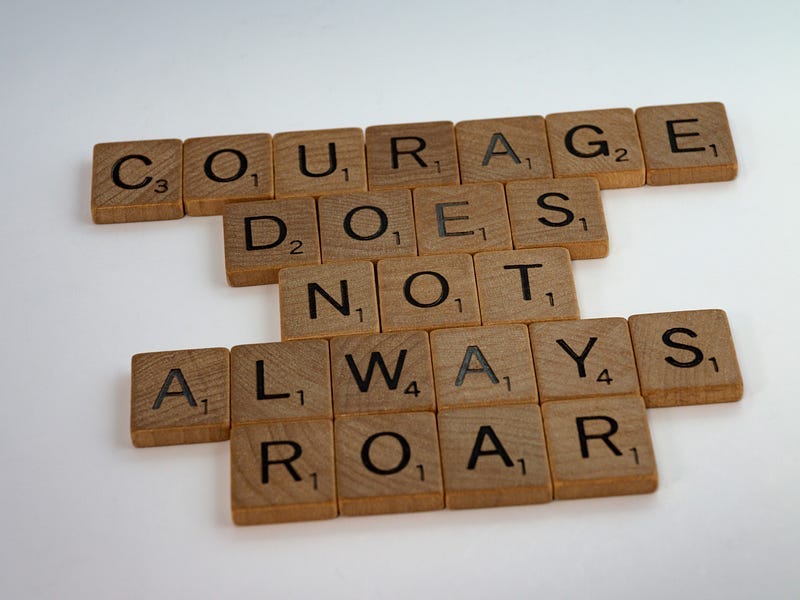
“Now, if virtue promises to enable us to achieve happiness, freedom from passion, and serenity, then progress towards virtue is surely also progress towards each of these states. For it is invariably the case that, whatever the end may be towards which perfection in anything definitively leads, progress marks an approach towards that end.”
-Epictetus. Discourses 1.4.3-1.4.4
For the Stoics, everything was built around virtue. Unlike other philosophers such as Aristotle who listed eleven virtues, the Stoics saw four virtues, nowadays referred to as the Cardinal Virtues, as the bedrock to living a good life.
Prudence is the practical wisdom we apply in life, it helps us to know what to do in the situations we face.
Justice is the ability to be moral within our decisions and actions, weighing them appropriately.
Temperance is our ability to have control over the actions we take and not just react.
Fortitude is the courage we face in the trials and tribulations of life and how we approach life with courage and resilience.
Combined, these four virtues, when put to use, provide a path to the good life according to the Stoics.
Marcus Aurelius, reflecting on all of these, reminds himself:
“How to act:
Never under compulsion, out of selfishness, without forethought with misgivings.
Don’t gussy up your thoughts.
No surplus words or unnecessary actions.
Let the spirit in you represent a man, an adult, a citizen, a Roman, a ruler. Taking up his post like a soldier and patiently awaiting his recall from life. Needing no oath or witness.
Cheerfulness. Without requiring other people’s help. Or serenity supplied by others.
To stand up straight — not straightened.”
— Marcus Aurelius. Meditations III.5
Throughout our daily lives, we come across opportunities to implement these virtues. There is a notion that there are these big moments in life that are virtue defining, where we have to become heroic and stand up to the situation, but the fact is, virtue is a daily pursuit, and it comes down to each decision we make, not just the big ones.
"We acquire virtues by first having put them into action,” Aristotle wrote.
Aristotle also states within the Nichomachean Ethics that virtue is a habit. It is the flywheel to living the good life, the more we practice virtue, the more it becomes engrained within our actions and decisions, the more likely we are in the future to think and act in a virtuous way. This is an active engagement within the habituation of virtues, one cannot simply passively approach a life of living virtuously, it is sought and put into practice daily—Virtue is exposed through action.
In his book, The End of Faith, Sam Harris discusses a situation he found himself in while traveling abroad. He was on his way back to his hotel when he stumbled across several men aggressively engaging a woman. He wanted to help, but quickly imagined what would happen if he stepped in and physically asserted himself against these individuals the way he wanted to. Instead, he walked over to one of the men and started a discussion, one in which he said he was looking for his hotel, was lost, and needed to find it. He played up the gimmick, getting into a discussion with the man just long enough for the woman to catch on to his act and exit the situation.
Reflecting back on the experience after the fact, he could not help but feel shame and embarrassment as he wanted to physically act and stop the men, but he was completely outnumbered and being in a country he was not familiar with, could have easily found himself beaten up if not killed. But he felt a need and responsibility to help if he could. Reflecting on the situation within the book, he states he knows he made the right decision in not physically engaging the men.
Fortitude does not always mean being the one to wade into the fight, it means having the courage to make a difference, but not being stupid about it.
The virtues are there to be used in conjunction with one another. It is through the use of all the Cardinal Virtues that one practices virtue, and sometimes, like the story above demonstrates, you have to use more of one at any given time. It would have been easy to physically insert himself into the matter, but would have most likely ended with him and possibly the woman being seriously injured. Sometimes life calls for prudence and temperance more than just fortitude.
Freedom from passion, serenity, happiness, these are all the byproducts in the pursuit of virtue. And that pursuit happens daily in the actions we take and the decisions we make.




